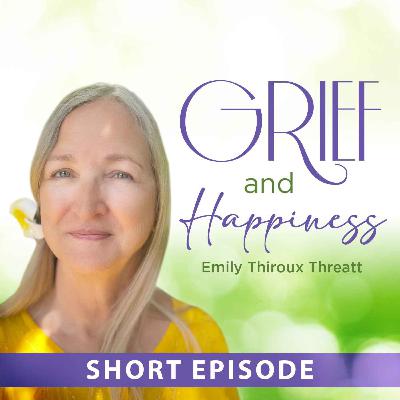How Writing Through Grief Can Save Your Life—Jonathan Foster on Taming the Wildness of Loss
Description
If you’ve ever wondered how grief could become a force for healing, episode 376 is for you. Author Jonathan Foster shares how the devastating loss of his daughter led him to co-found a nonprofit in Haiti and to write his powerful book Indigo: The Color of Grief. From building schools in remote villages to using writing to “tame the wildness” of loss, Jonathan shows how sorrow can transform into service, meaning, and even hope.
In This Episode, You Will Learn:
(01:02 ) Jonathan’s background as a pastor, writer, and nonprofit leader
(01:52 ) How the loss of his daughter inspired a nonprofit in Haiti
(03:55 ) Why helping others makes you a “wounded healer”
(05:47 ) Writing as a way to “tame the wildness” of grief
(07:57 ) Creating white space for readers to process their own loss
(09:40 ) The power of limits in art and writing—like haiku
(11:45 ) Jonathan’s advice on writing as a tool for grieving
(13:23 ) Rebuilding the language of love after loss
(15:20 ) Why grief fuels creativity and eliminates writer’s block
(17:02 ) Jonathan’s encouragement: rest, keep going, and don’t give up today
In today’s episode, I’m joined by Jonathan J. Foster, an author, speaker, and former pastor whose work explores the intersections of grief, love, and theology. After the loss of his daughter in 2015, Jonathan co-founded a nonprofit in Haiti that provides education and healthcare to underserved communities. His latest book, Indigo: The Color of Grief, distills nearly a decade of reflection into a poignant meditation on loss and resilience. Through his writing, speaking, and nonprofit leadership, Jonathan helps others find language and meaning in the midst of sorrow.
Throughout this episode, Jonathan shows how his personal grief reshapes his life’s direction. What begins as his daughter’s plan to work in Haiti grows into a nonprofit that now offers schools and healthcare in some of the most remote parts of the country, transforming tragedy into tangible hope for others. He reflects on the role of writing in metabolizing grief, describing it as a way to “tame the wildness” of loss and create white space for meaning-making. He emphasizes how language itself must sometimes be rebuilt after loss—rehabilitating old words and inventing new ones to hold the weight of sorrow and love. Jonathan’s perspective as a “wounded healer” highlights the paradox of grief: even in brokenness, there is profound potential to serve, connect, and help others heal.
Connect with Jonathan J. Foster:
Get Jonathan’s books
Let's Connect:
The Grief and Happiness Alliance
Hosted on Acast. See acast.com/privacy for more information.






